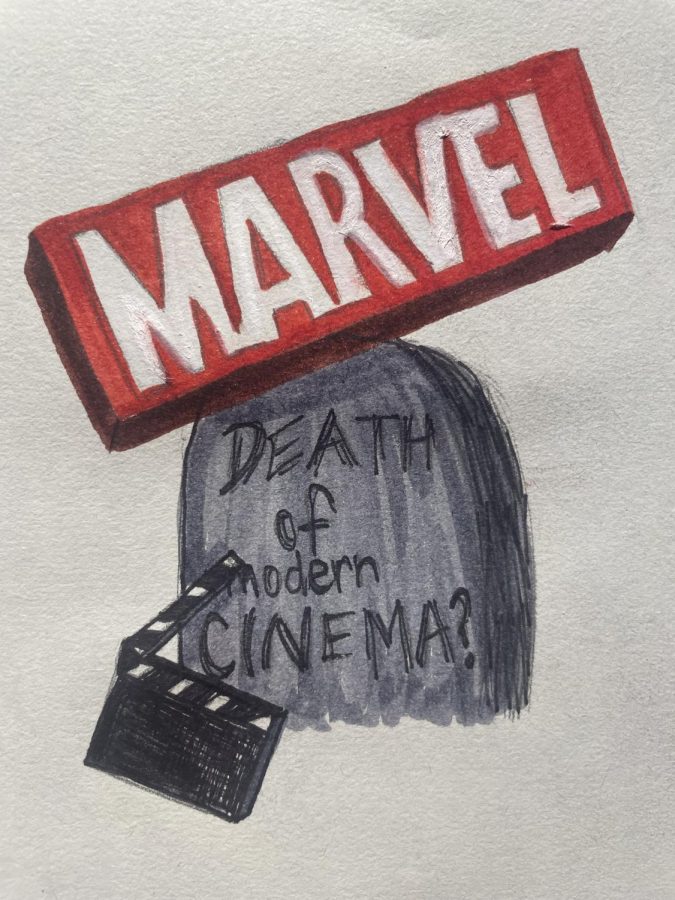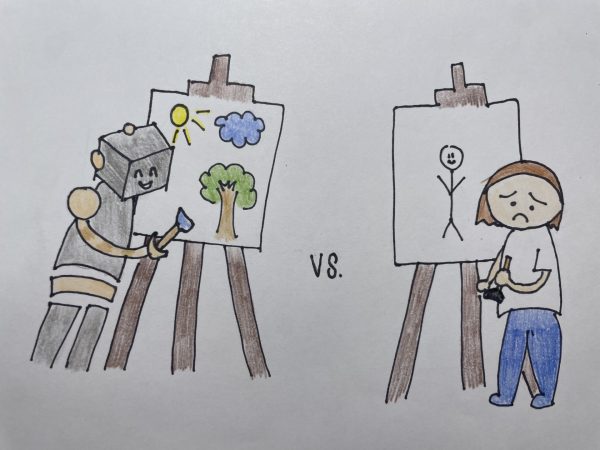Is Marvel the Death of Cinema?
Out of all the annual ceremonies that have become punchlines for the joke that is modern broadcast television, perhaps none is greater–and sadder–than that of the Academy Awards. The Oscars, as it is more commonly known, is pretty much universally derided as a three-hour snore, a masturbatory ode to Hollywood and all its worst, self-indulgent qualities. Unfortunately, this hatred of the Academy and its trophies has spilled over into hatred for the films nominated. Best Picture nominees are now more commonly associated with snooty intellectualism than actual quality. After all, has anyone even seen the movies being nominated these days?
In short, no, not really. But that is not really the fault of the movies, or even the Academy for that matter. The types of films nominated for Oscars have not ever changed – but their audiences have. In 1976, the drama One Flew Over the Cuckoo’s Nest, often considered one of the greatest films of all time, won the top prize of Best Picture. It was a bleak character study of Jack Nicholson’s Randall Patrick McMurphy, a man in a mental institution pretending to be clinically insane to avoid prison time. It was also the second-highest grossing film of the year, making over 100 million dollars at the box office (over a billion when adjusted for inflation). Compare this to Moonlight, the Best Picture winner of 2017, a film that received near-universal acclaim from critics. The film made a measly 64 million dollars, the second-lowest Best Picture gross in history. In fact, five out of the ten lowest-grossing films to receive this coveted award are from the past ten years. No matter the amount of reverence you hold for the Academy, there is no denying the fact that dramas, both mainstream and indie, are simply making significantly less money than they did twenty years ago. But why? Is there really a single reason that prestige films are dying? The answer is complicated.
For better or for worse, arguably the most influential movie of the 21st century is 2009’s Iron Man. The film did not receive stellar reviews or break any box office records, but it did set the Marvel Cinematic Universe, the biggest movie franchise of all time, into motion, as well as become the template for the modern-day superhero blockbuster. It is no secret that most MCU movies follow pretty much the same guidelines: a fast-quipping, muscular male lead with a heart of gold, a no-nonsense-yet-very-attractive female love interest, a bitter villain with virtually the same powers as the hero, some extensive fight scene on a moving vehicle, and a sprawling, 40-minute final battle that occupies the space of a third act. Beyond that, it is virtually impossible to find directorial differences between any of the films. Every fight scene uses the same three-cuts-per-second, choppy editing style. Shots feel bland and perfunctory, do the bare minimum to move the plot along. Any chances at creating genuinely memorable or captivating imagery is consistently squashed by an overuse of poorly rendered CGI (seriously, have you seen that floating child’s head from Thor: Love and Thunder?). Recent Marvel projects, like the Benedict Cumberbatch-led Doctor Strange and the Multiverse of Madness, have got away from their directors making what could be considered the bare minimum of “directorial choices.” Sam Raimi was seemingly granted at least six Dutch angles–but they are few and far between, drowned out in a sea of bland, inoffensive excitement.
That is exactly the strategy behind Marvel– inoffensiveness. Perhaps the greatest strength of the MCU is its almost chemically engineered ability to create the perfect crowd-pleasing blockbuster. Just look at the audience scores for Marvel films on Rotten Tomatoes: a large majority sit equal to or above the 85% threshold, an incredible feat when you consider the massive scope of the MCU’s catalogue. There is nothing inherently wrong with a crowd-pleasing movie; an excellent blockbuster is just as commendable as a stirring drama or a heart-pounding thriller. Back in 1975, what was the only movie to beat out One Flew Over the Cuckoo’s Nest at the box office? Steven Spielberg’s Jaws, considered by most film critics to be the first true blockbuster in every sense of the word.
And yet, Jaws is more than just an easy summer smash-hit– it is still a film. Spielberg’s directorial vision can be followed throughout the movie, and both strong writing and exciting cinematography have kept the film in the public’s consciousness for nearly 50 years. Compare that to a film like Captain America: Civil War, where nearly every creative choice feels like it was made by a boardroom rather than an artist (and, if we are to trust what has been said by actual MCU directors and production crews, this may not be far from the case). In short, Marvel is squashing creative vision in the film industry, and making billions while doing so. Unfortunately, the domination of the superhero film on the box office is having serious effects–ones that may be altering cinemas permanently.
Marvel has been consistently breaking the box office with nearly every film they have released since 2009. The problem is that nothing else is really competing with MCU films, save for the occasional Star Wars or Top Gun sequel. Thus, the MCU has had a chokehold over movie theatres for over a decade. When a new Marvel movie is released, it has become the norm for many theatres in one complex to show solely this movie–in fact, there have even been many cases of Disney threatening to pull their Marvel movies from theatres unless they are given such total domination over the screen. Due to this complete takeover of cinemas, more and more films–real films, ones with creative visions behind them–are moving to streaming services, receiving limited releases in select theatres, or simply not being made at all. There is no question about it: films are dying. Box-office hits are no longer films; they have become products, corporate creations designed to deliver a pleasing two hours and15 minutes experience to mass amounts of consumers and nothing more. Unless audiences return to the few movie theatre releases left with genuine voices behind them, nothing is going to be changing anytime soon. It is hard to imagine One Flew Over a Cuckoo’s Nest making 100 million dollars in 2022. In fact, it is hard to imagine it would be made at all. After all, the title is misleading–there is no actual flying contained in the film–so who would even care?

I am a member of the Class of 2023, and I am the online editor-in-chief. Some of my passions include acting, making movies, and finishing a bag of Doritos...











































